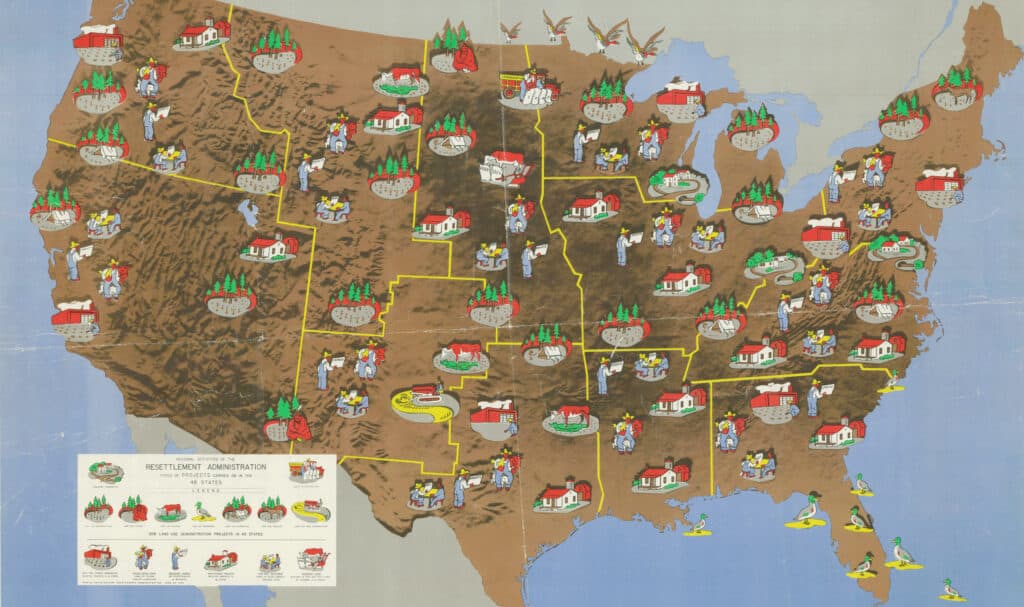Placing our trust in Earth

May 5
2022
8:00 pm - 9:00 pm EDT
Online event
All attendees will receive a meeting invite
Free
Summary

Conservation Basins of the New Deal's Resettlement Administration
In the 16-17th centuries BCE, Joseph of Egypt planned to store food for 'seven fat years' to provide for 'seven lean years' for the people of the Nile watershed.
In the 1930s, Franklin Delano Roosevelt’s New Deal planned to develop conservation basins in different regions of the United States to relocate farmers, develop agricultural subsidies and establish self-sufficiency in these areas.
Why weren’t these plans sustainable? What do these case studies teach us about policies that could work today?
Here is a link to the presentation by Managing Director, James Quilligan on May 5th, 2022.
KEYNOTE SPEAKERS
Sign up for our newsletter
EDA News is a quarterly publication that includes updates on our activities, feature stories, events, comments from members and reviews of articles from other sources. Read back issues of the newsletter.